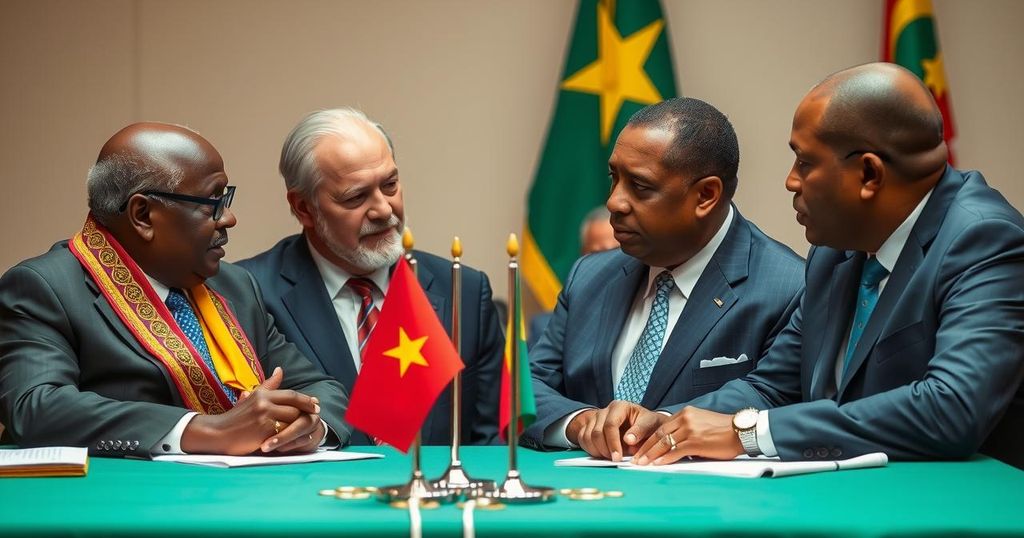The African Union urges Ethiopia and Somalia to swiftly implement a recently reached agreement aimed at easing tensions regarding Ethiopia’s access to maritime coastlines. The deal follows Ethiopia’s controversial agreement with Somaliland for access to the coast, which Somalia views as a violation of its sovereignty. Turkish-brokered talks led to a commitment from both nations to cooperate, although the future of the Somaliland-Ethiopia accord remains unclear.
The African Union has called upon Ethiopia and Somalia to urgently implement an agreement intended to alleviate tensions between the two neighboring nations regarding Ethiopia’s maritime access. This call comes after Ethiopia entered into a contentious deal with Somaliland, a region of Somalia that declared independence in 1991, aimed at establishing a port and a military base along the coastline. Somalia views this agreement as encroachment on its sovereignty, which has escalated concerns of potential conflict within the region.
An agreement was reached following a series of discussions facilitated by Turkey, where Somali President Hassan Sheikh Mohamud and Ethiopian Prime Minister Abiy Ahmed convened to address bilateral issues. Both leaders acknowledged the importance of collaboration for the sake of peace and stability in the region, emphasizing mutual interests in working together.
The African Union Commission Chairman emphasized the importance of swift implementation of the agreed-upon measures, although specific details on the implementations were not disclosed. The regional bloc IGAD also recognized the agreement as a commendable step towards peaceful resolutions. Under the accord, both parties committed to setting aside disagreements and engaging in cooperative ventures that ensure secure maritime access for Ethiopia, all while respecting Somalia’s sovereignty.
Technical discussions are anticipated to commence promptly, aimed at cementing this collaboration. However, there remain uncertainties around Ethiopia’s ongoing agreement with Somaliland, as sources indicate that the deal has not been annulled. Both nations remain keenly aware of the historical complexities tied to Ethiopia’s landlocked status following Eritrea’s secession in 1993 and are navigating this delicate diplomatic landscape.
The relationship between Ethiopia and Somalia has been historically fraught with tension, particularly since Ethiopia, which lost its coastline following Eritrea’s independence, has sought ways to establish maritime access. The recent agreement involving Somaliland—an autonomous region that declared independence but is not internationally recognized—has further complicated this dynamic. The African Union plays a critical role in mediating such disputes and has emphasized the need for immediate action to prevent conflict and promote cooperation between the two nations. The involvement of Turkey in brokering the talks illustrates the international interest in ensuring stability in the strategically located Horn of Africa, a region that is pivotal for trade and security.
The African Union’s call for Somalia and Ethiopia to expedite the implementation of their recent agreement highlights the urgency of fostering regional stability amid rising tensions. The acknowledgment of mutual interests by both countries signifies a step towards collaborative engagement, which is crucial in navigating the complexities of Ethiopia’s quest for sea access while respecting Somalia’s sovereignty. Ongoing dialogues and technical talks will likely play a pivotal role in shaping the future relations between these nations as they seek to resolve longstanding challenges amicably.
Original Source: www.seychellesnewsagency.com






